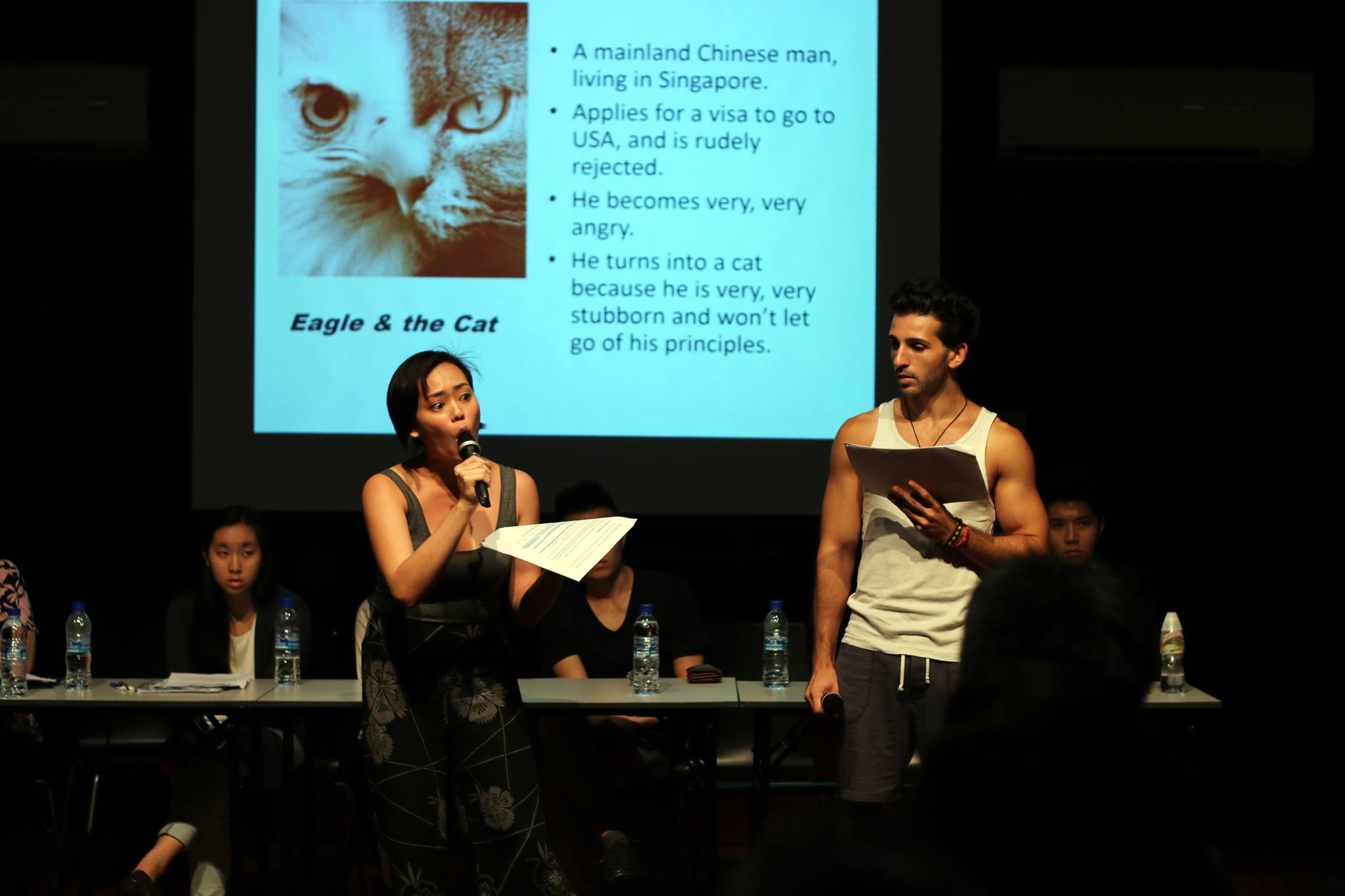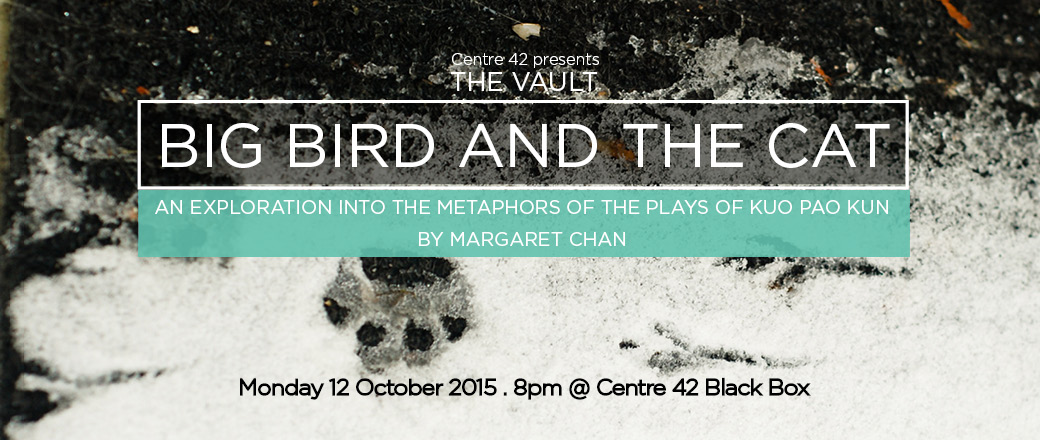Admission is free.
In this instalment of The Vault, Margaret Chan remembers Kuo Pao Kun (1939-2002), her dear friend and creative collaborator. Kuo was a humanist and patriot whose life and work indelibly shaped the course of Singapore theatre.
Margaret was tasked by Kuo in the last year of his life to produce The Eagle and the Cat. He told her the play was his most important, even though it had not received much attention. To Margaret, the play is clearly autobiographical, a precious capsule in which Kuo shares his beliefs that fuelled his vocation as a writer of theatre. She proposes that there are no clues but clear meaning in the tropes of “Big Bird” and “Cat” which appear in this script.
Join Margaret Chan in her investigation of Kuo Pao Kun’s metaphors of Big Bird and the Cat. Features readings from four of his plays by Ali Khan, Margaret Chan and SMU students – The Eagle and the Cat (Chinese 1990, English 1995), The Evening Climb (1992), Descendants of the Eunuch Admiral (1995), Mama Looking for Her Cat (1988).
Margaret Chan introduces the structure of her seminar, as well as her students from Singapore Management University (SMU) who will be reading excerpts from several of Kuo Pao Kun’s texts. She also shares the main thesis of her presentation. Recorded and edited by Daniel Teo.
Margaret goes through the story of Kuo Pao Kun’s The Eagle and the Cat. SMU students Nathan Al Taei, Terry Tan, Lou Shixun and Tai Jie Xin read excerpts from the play. Recorded and edited by Daniel Teo.
The discussion about the metaphor of big bird from several perspectives, drawing from linguistics and art history to support her claim that the big bird in Kuo Pao Kun’s plays refers to the revolutionary spirit. Recorded and edited by Daniel Teo.
Margaret argues that Kuo Pao Kun was inspired by the revolutionary writers of China. Recorded and edited by Daniel Teo.
Drawing out the similarities between Kuo Pao Kun and Chinese revolutionary writer Lu Xun. SMU student Phua Jie Yun reads an excerpt from Lu Xun’s Medicine. Recorded and edited by Daniel Teo.
Margaret argues that Kuo Pao Kun’s works (those inspired by the Chinese revolutionary writers) were written in the manner of social realism, in that they often highlighted the plights of ordinary people. She cites The Coffin is Too Big For the Hole and No Parking on Odd Days as prime examples of Kuo Pao Kun’s social realist writing. SMU student Hiroshi Kondo reads an excerpt from The Coffin is Too Big For the Hole. Recorded and edited by Daniel Teo.
Margaret argues that the trope of castration, surfacing in Kuo Pao Kun’s The Descendants of the Eunuch Admiral and The Evening Climb, signaled Kuo’s dissatisfaction and feelings of helplessness as an artist and writer in Singapore. Recorded and edited by Daniel Teo.
Margaret Chan and veteran actor Ali Khan perform an iconic scene from Kuo Pao Kun’s Mama Looking For Her Cat. Recorded and edited by Daniel Teo.
Programme for The Vault: Big Bird and the Cat
The Eagle and the Cat was first staged in 1990 for the opening of The Substation. It is a monologue that tells a surreal tale of a man who turns into a cat.
The Evening Climb premiered at the Singapore Festival of Arts 1992 and is a strange tale of three 70-year-old characters in search of a mythical big bird.
Descendants of the Eunuch Admiral is one of Kuo Pao Kun’s most acclaimed works. First staged in 1995, Descendants is a lyrical play based on the ancient mariner Zheng He which comments on the trappings of modern life.
Mama Looking For Her Cat is recognised as a ground-breaking play for its use of multiple languages. First premiered in 1988, the play is about a mother, who speaks only Hokkien, in search for her lost cat.
Click on the links below for more information about these plays.

Photographed by Merissa Tang.
View more at: Centre 42 Facebook
